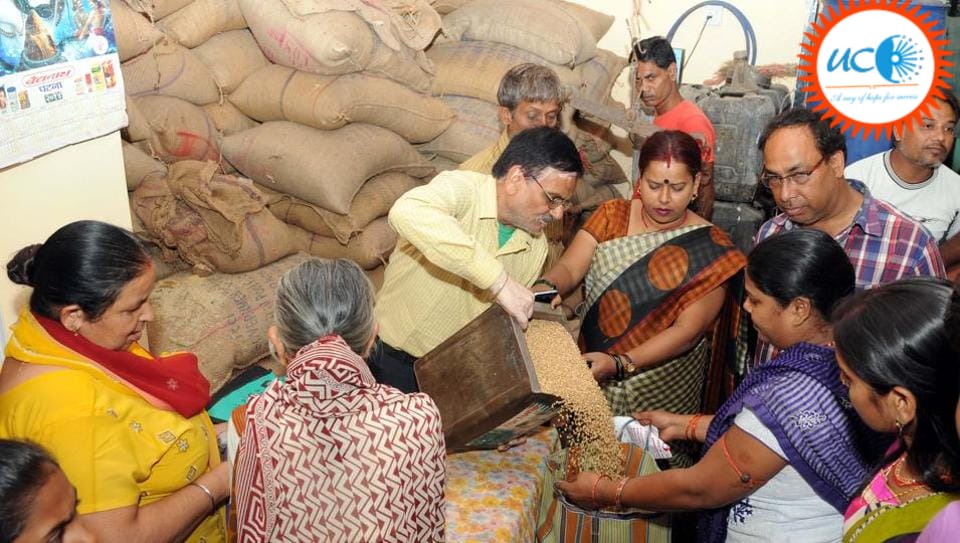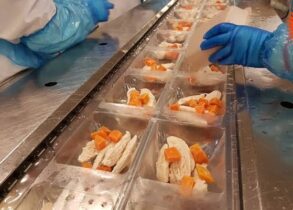What are the major challenges of the Public Distribution System (PDS) in India? How can it be made effective and transparent?
Introduction:
The Public Distribution System (PDS) is an Indian food security system which evolved as a system for the distribution of food grains at affordable prices and management of emergency situations.
Body:
Under the National Food Security Act (NFSA), 2013, PDS is being implemented across all States and UTs. According to the Act, food grains (rice, wheat, and coarse grains) can be distributed at prices of Rs. 3/2/1 per kg to up to 75% of the rural population and 50% of the urban population, respectively.
Challenges:
- Identification of beneficiaries:
- In the beneficiary statistics, there are significant inaccuracies in the removal and inclusion of households that are Below Poverty Line (BPL) and Above Poverty Line (APL). Lack of reliable regular data and consistent government estimates of household actual income exacerbate the targeting issue.
- While people who are ineligible are receiving improper benefits, rightful beneficiaries are not receiving food grains. A Ministry of Rural Development expert panel that examined the BPL census methodology discovered that 25% of non-poor households and approximately 61% of the eligible people were both left off the BPL list.
- The appearance of ghost cards in various states is another sign of incorrect beneficiary classification. Cards created in the names of nonexistent people are known as “ghost cards.” Ghost cards suggest that grains are being stolen from deserving homes and sold on the open market.
- Shortfall in storage capacity with FCI against the central pool stock:
- The CAG’s performance audit has identified a significant storage capacity gap in the government.
- The food grains that have been purchased must be kept as a buffer stock once responsibilities under TPDS have been fulfilled. Although there has been a significant increase in purchasing, FCI’s storage capacity (both owned and hired) has not risen in step with the growth in purchasing.
- Rising Subsidy and financial burden:
- There are further concerns regarding patterns in procurement in comparison to food grain production. According to recent figures, the central government purchases around a third of the locally produced cereals. The NFS Act is projected to increase the quantity earmarked for procurement, which raises questions about how long such a food distribution system can last.
- Concerns have also been raised about the system’s viability from a financial standpoint. Because the cost of obtaining and shipping food grains is almost six times their retail price, the centre is forced to shoulder a significant financial burden. The Act’s increased grain procurement, associated expenses, and other variables are expected to cause the food subsidy to expand steadily.
- Inconsistent quality:
- The vast majority of responders claimed that the ration quality varies—sometimes it’s great, sometimes it’s terrible. The criticisms mostly related to the poor quality of the wheat. The majority of recipients weren’t happy with the wheat and rice’s quality.
- Corruption and leakages:
- High levels of corruption and leakage still plague the PDS despite the important, system-wide adjustments made in recent years. A portion of this leakage happens at the level of the fair price shops, where some shop owners swap out the high-quality government-provided goods for general store products of lower quality.
- Some believe the dual pricing made possible by the TPDS will encourage stakeholders to shift goods to the open market where they can fetch a greater price.
- Lack of transparency in the selection procedure of PDS dealers.
Ways to make it effective and transparent:
- End to End computerisation:
- The Justice Wadhwa Committee Report for PDS (2011) recommended computerization for two reasons: first, to prevent diversion; and second, to allow for safe identification at ration stores.
- Gujarat and Chhattisgarh have been chosen by the Committee as model states for the first and second components, respectively. Other governments have started the enormous undertaking of computerising the entire supply chain, most notably Karnataka. In this state, a biometric user database and electronic PDS (e-PDS) cover transactions with authorised wholesale dealers.
- Universal PDS: Tamil Nadu implements a universal PDS, such that every household is entitled to subsidised food grains. This way, exclusion errors are reduced.
- Digitalisation: States such as Chhattisgarh and Madhya Pradesh have implemented IT measures to streamline TPDS, through the digitisation of ration cards, the use of GPS tracking of delivery, and the use of SMS based monitoring by citizens.
- Use of Adhaar: As part of Beneficiary Data Digitisation, States/UTs have been requested to seed the Aadhaar Number wherever available so as to weed out bogus/duplicate/ineligible beneficiaries. So far data of 61.25 per cent beneficiaries have been linked to the Aadhaar Number.
- Direct Cash Transfers: The Government is also pressuring States/UTs to choose Direct Benefit Transfer (DBT), under which the subsidy component will be credited to beneficiaries’ bank accounts to ensure their eligibility and give them the freedom to purchase foodgrains from any vendor, in order to check for leakage and diversions.
- Improving storage capacities: As it is known that increased storage capabilities are required to ensure proper storage of purchased food grains for PDS programmes. As a result, storage capacity have been increased throughout the nation using monies from plan programmes and private investment under Public Private Partnership (PPP) mode. Godowns are built by private investors and contracted by FCI for a guaranteed duration of 10 years under the Private Entrepreneur Guarantee (PEG) Scheme.
- Checking corruption: At the state, district, block, and fair price shop (FPS) levels, each State/UT Government is mandated to establish a Vigilance Committee. The District Grievance Redress Officer is notified in writing of any violations as well as any financial misappropriation by these Committees, who periodically monitor the execution of all the National Food Security Act-covered programmes. In accordance with the new policy, Panchayats, Self Help Groups, and Co-operatives are given preference when it comes to licencing Fair Price Shops.
Conclusion: PDS must rapidly reinvent itself to successfully alleviate hunger among millions of poor. In particular, it needs to transform its rigid planning processes into responsive and flexible processes that can serve the highly variable and dynamic demand with alacrity.






